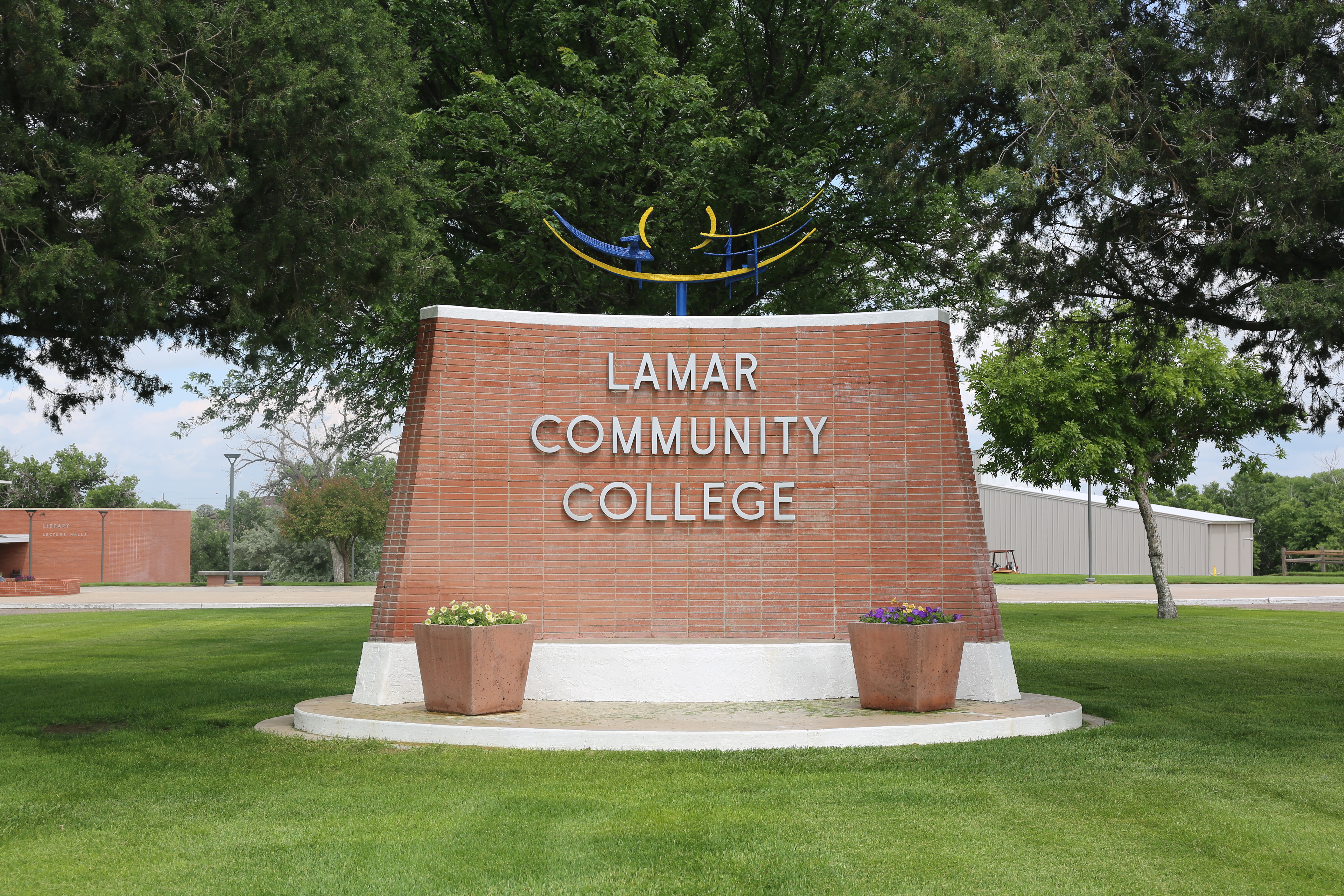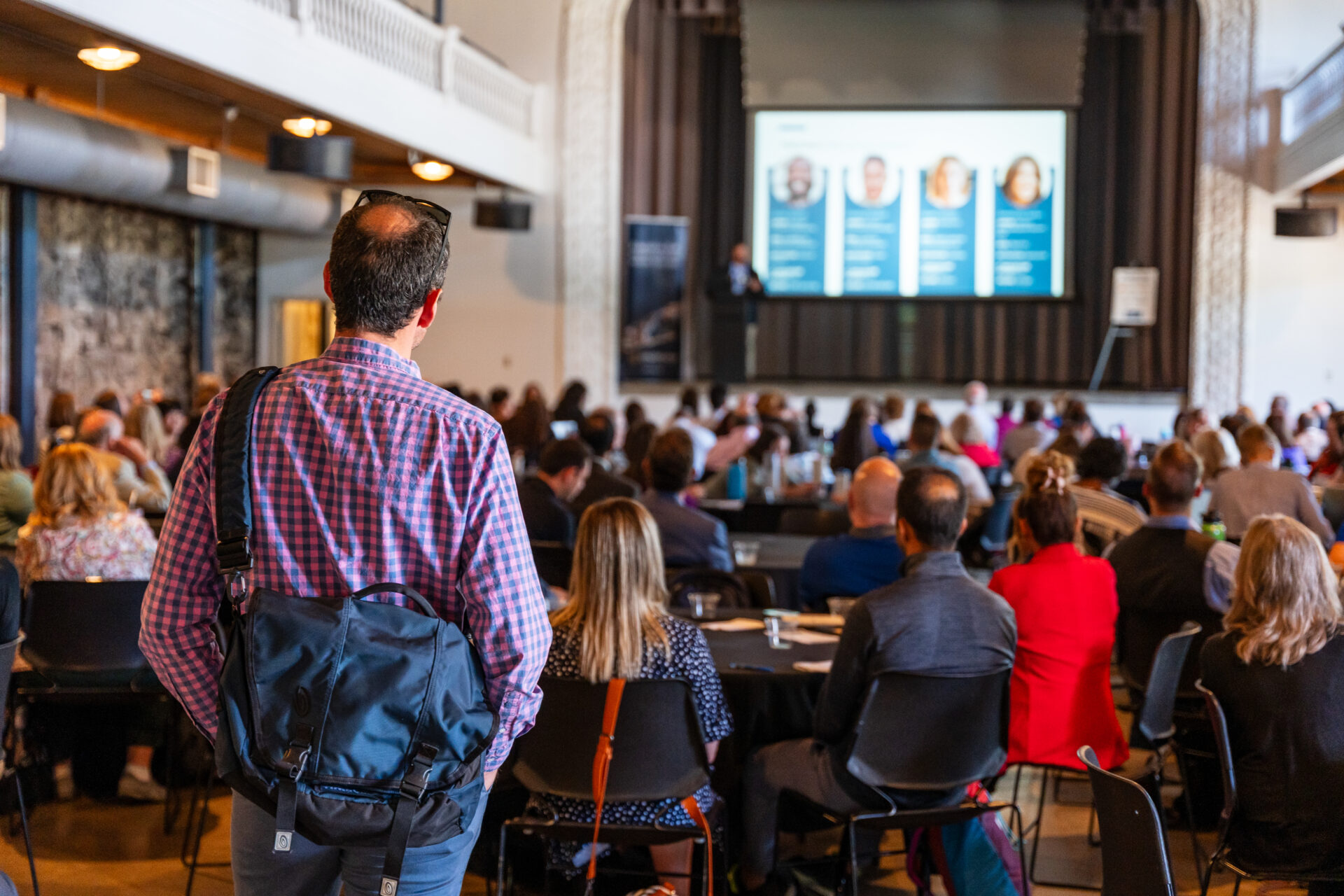The Colorado Community College System took center stage at a national summit bringing together federal, state, and higher education leaders to discuss strategies to rapidly train a clean energy workforce.
Hosted at the Community College of Aurora (CCA), the event featured remarks from U.S. Secretary of Education Miguel Cardona, U.S. Department of Energy Under Secretary Geri Richmond, Governor Jared Polis and members of the Colorado congressional delegation. With historic investments through the Inflation Reduction and CHIPS and Science Acts, the federal government is looking to community colleges to quickly develop and scale clean energy training pathways to meet industry demands.
“This is going to be a period when we really transform not just our country, but the world, and we don’t have the workforce,” said Sen. John Hickenlooper (D-CO) in his opening remarks. “We can get the Department of Energy and the Department of Education to work hand and glove with a state and create a pathway by which students of all ages can get the tools they need.”
Connecting Education to Careers
To prepare for this “tsunami of new jobs,” the U.S. Department of Education is encouraging states to reimagine high school and provide more career-connected learning opportunities, said Sec. Cardona. By blurring the lines between K-12 and higher education, more students can graduate with industry credentials and step into clean energy jobs.
“When I speak with young people, they don’t just want good careers—they want good careers that actually mean something,” he said. “They understand the climate crisis we’re in, and they’re committed. We need to meet them halfway by providing pathways.”
CCCS colleges have a head start on designing this clean energy programming thanks to state and philanthropic investment. Northeastern Junior College and Pueblo Community College are already training students in industrial systems maintenance, for example, and additional colleges are ramping up programming in electric vehicle maintenance, clean trucking, and solar panel installation in partnership with Education Design Lab.
It’s this work-based approach that has made CCCS the partner of choice for workforce development, said Gov. Jared Polis in a conversation with Sec. Cardona. He touted the state’s zero-cost training programs—Care Forward Colorado and Career Advance Colorado—as a promising solution to close skills gaps in in-demand sectors.
“When we’re meeting with major companies, the number one issue they’re citing is workforce,” Gov. Polis said. “We seek to partner with our community colleges and with our high schools to make sure that we’re preparing with skills that they need so companies can hire the workforce the need.”
Blurring the Lines
The summit also showcased CCCS’ pathway development work at a systemwide and college level.
Dr. Sarah Heath, CCCS Associate Vice Chancellor for Career & Technical Education (CTE), led a session on maximizing funding for career-connected education. CCCS is the only community college system in the country that oversees federal Perkins dollars, allowing Colorado to chart CTE pathways starting in middle school through college, she said.
“We’re not making our own CTE programs—it’s all aligned to the workforce competencies that were identified through our career pathways initiatives that are led through the Colorado Workforce Development Council,” she said. “The learner can earn high school and college credit and an industry certification. That gives them more choices and mobility.”
Jesse LaRose, the dean of Colorado Northwestern Community College’s (CNCC) Craig Campus, spoke on a panel with representatives from the Yampa Valley Partnership for Students, Stewardship, and Sustainability that aims to develop regional climate-related career pathways.
The learner can earn high school and college credit and an industry certification. That gives them more choices and mobility.
As Craig moves away from the town’s historic industry of coal production, the college will play a critical role in training workers for the clean energy sector, LaRose said. CNCC is already working closely with industry experts to explore programming in green construction and rare earth metal mining.
“When this opportunity to partner with several of our K-12 districts within our service region came about, it was a no brainer,” LaRose said. “We are really interested in blurring the lines of Pre-K through 20 education.”
Over the last few years, the group has rolled out career exploration in middle and high school and connected students with internships and other work-based learning opportunities. Jennifer Holloway, the executive director of the Craig Chamber of Commerce, said these efforts will stave off “brain drain” among young people.
“With our lack of diversity in our economy, that’s where we see this pathway work really being beneficial,” she explained. “If we can incorporate any kind of sustainability, that’s going to create stronger businesses and a healthier community.”
Feeling at Home
Summit participants also heard from a panel of CCA three students, hosted by CCCS Chancellor Joe Garcia. Ranging in age and backgrounds, they said community college has been the ideal gateway to a career in energy.
Jada Gray, who participates in the state’s ASCENT program, said starting at CCA helped her develop skills needed to succeed in college. She has already been accepted to Colorado School of Mines, the state’s most competitive four-year university, to pursue a degree in engineering next year.
“Here, I’ve felt at home. I’ve felt welcomed, and I felt close enough to staff where I was able to ask questions,” she said. “It’s really changed my life, and it’s made me want to go to a university such as School of Mines.”
Fellow panelist Nicholas Leftridge agreed, noting that CCA professors go above and beyond to support students. After months of persistence, Leftridge’s professor landed him a coveted internship with Chevron next summer so he could explore petroleum engineering up close.
“You can tell there’s genuine interest and concern and helping you get to where they want to be,” he said.
On top of this personal support, Gray and Leftridge also benefitted from participating in extracurricular organizations like student government. Participating in these professional opportunities not only helps students stay in school, but prepares them for future careers, Chancellor Garcia said.
You can go from not having any kind of background in math to being an engineer—it just takes the time and the support of the community college.
“Students who get involved and engaged in campus life outside of a classroom really establish a connection that keeps them coming back day after day and gives them the leadership skills, the communication skills, the teamwork skills,” he commented.
It’s this holistic environment that is truly transformative for students, said Dylan Lawson. A former chef, he said CCA’s welcoming environment has empowered him to succeed beyond his expectations and chart a path to a new high-skill, high-paying career.
“You can go from not having any kind of background in math to being an engineer—it just takes the time and the support of the community college,” he said.


